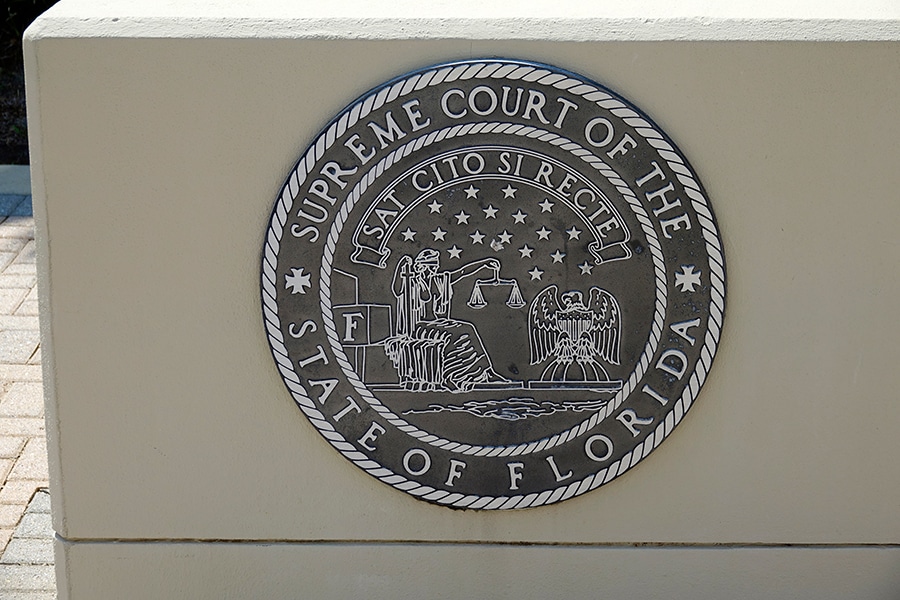You may be shocked and angered when you receive a notice that your HOA fees are going up, especially when you feel that they are already too high. Your HOA must follow certain rules and procedures when it comes to how they levy assessments and spend your money. You can take legal action when you believe that these laws have been violated. To learn more, read on and reach out to a Florida HOA lawyer today.

What Fees Can an HOA Assess?
HOAs have operating budgets for things like maintenance of the overall property and administration. Further, they may also have special expenses for large repairs or projects. Accordingly, an HOA may levy two types of fees:
- Regular assessments: Money for covering operating budgets comes from the regular assessments that an HOA makes that are usually in the form of your monthly dues.
- Special assessments: The HOA may levy a special assessment if there is a large particular project or repair that must be made, or if there is a significant financial shortfall.
HOAs may raise their assessments if they find that their operating expenses are more than the money that they are taking in from fees. This action may come as a shock to you because you were not counting on having to pay more money.
Florida Law Governing HOA Fees
When it comes to fees, the HOA cannot simply do what it wants how it wants. Florida law imposes a number of conditions on HOAs when it comes to how it assesses fees on homeowners. It is important to note that the law focuses more on process, as opposed to how much an HOA can charge in fees. There is no set limitation on HOA fees in the state. Nevertheless, you may be able to challenge an HOA fee if the board did not follow the law and its own procedures.

The keys are the HOAs own procedures and the transparency that they provide. The HOA must comply with its own governing documents when assessing or raising fees. The HOA must also follow its own procedures to the letter when dealing with fees.
Further, the HOA must also provide you with the necessary information that you need to both be informed and to exercise your own rights as a homeowner. The HOA must provide you with annual budgets and financial records in advance of any consideration of assessing or raising fees. As a homeowner, you are legally entitled to review them.
The problem is that homeowners do not always have the right to vote on the fees. Depending on the governing documents, the board may have the ability to set fees on their own (after giving homeowners the right to be heard). The governing documents may require the HOA to hold a vote on a special assessment, but that is not always the case.
When You Can Sue for HOA Fees
Although you cannot sue just because you think that your HOA fees are objectively too high, there are certain situations in which you can take legal action against your HOA. Of course, you can always sue when you believe that the HOA has not properly followed the governing procedures and law.
There may be other reasons why you can sue an HOA for high fees, including:
- Breach of fiduciary duty: The situation that has led the HOA to raise fees could be the result of the breach of the fiduciary duty that they owe you. The HOA has both the duty of care and loyalty. They must use reasonable due diligence in making their decisions, and they must avoid conflicts of interest. They may be raising fees because of their own negligence or a transaction which involved a conflict of interest.
- Misuse of fees: The HOA may not be properly using the fees that it has been collecting. This argument is a similar one to the breach of fiduciary duty. Here, you focus on how the HOA spends its money and its own means of financial management. You may even have evidence that the HOA has committed fraud in its activities.
- Selective enforcement: The HOA must apply fees to all homeowners equally based on the rules and ownership interest. You can challenge fees when there is unfair allocation or enforcement.
How to Fight Back Against High HOA Fees
The first step that you must take to fight against unreasonably high HOA fees is hire an experienced lawyer. An HOA attorney can help you take a stand to reduce HOA costs when the board has broken the law. There are numerous steps that you can take.

The first thing that you can do in advance of filing a lawsuit is to seek alternative dispute resolution with the HOA. Under Florida law, certain HOA disputes must be mediated before they can go to litigation. If you have a strong case, you may be able to present it to the HOA in mediation, and they may realize that they are violating the law.
If mediation is unsuccessful, you can file a lawsuit against the HOA in court. A judge could make the final decision about your HOA fees, but again, there needs to be a reason why they are improper besides the fact that they are high.
How an HOA Attorney Can Help You
An HOA can help you dispute HOA fees. First, they can review the situation to help learn about whether you can challenge the HOA fees. Second, they can communicate your position to the board on your behalf. Finally, your lawyer can represent you in any legal proceeding relating to the fees, whether it is mediation, arbitration or a lawsuit. They can help you present your strongest possible legal position as you fight to reduce HOA fees. Remember that the HOA does not always get the final say, especially when you choose to challenge them in court.
Contact a Florida HOA Lawyer Today
If you believe that your HOA is acting improperly, Consumer Law Attorneys can help. We can advise you whether you have a legal case against your HOA and then work to hold them accountable through the legal process. The first step that you can take is reaching out to us to schedule a free initial consultation. You can speak with an HOA lawyer by messaging us online or by calling us today at (877) 241-2200.

